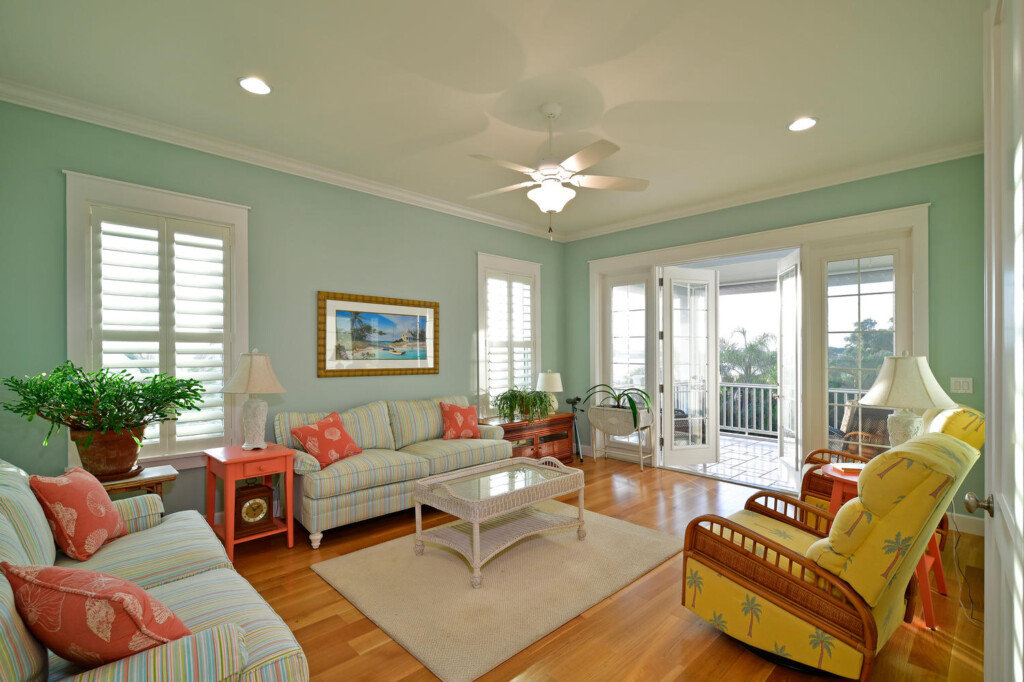Sometimes, the home you’ve loved for years is no longer sufficient for your needs. At this point, you need to make a decision – should I renovate this home? Or should I take this opportunity to build a brand-new home? The questions represent a significant choice that can impact your finances, lifestyle, and overall happiness. Both building and renovating have their own unique advantages and disadvantages.
If you are trying to decide between building new and renovating, here are some key considerations to help you make the right choice.

- Assess Your Current Home: The process should begin with an honest evaluation of your current home. Consider its condition, layout, and whether it meets your current and future needs. Are there structural issues, outdated systems, or insufficient space? If the house requires extensive repairs or updates, building new might be a more practical option. However, if you love your neighborhood, have established roots, and the home has good bones, investing in renovations may make you happier in the long run.
- Evaluate Your Needs: Think about your lifestyle and how your needs may change in the coming years. If you plan to expand your family, need a home office, or require additional living space, consider whether your current home can accommodate these changes. If it can’t, building a new home allows for complete customization to fit your lifestyle. On the other hand, if renovating can meet your needs—such as building an addition or reconfiguring existing spaces—this could be a less disruptive option.
- Financial Considerations: Renovations can vary widely in price depending on the scope of work and materials used. Conversely, building a new home typically requires a more significant upfront investment, including land purchase, construction, and landscaping. Renovating may uncover unforeseen issues, such as mold or outdated wiring, which can increase expenses; while new builds might involve costs for permits, inspections, and landscaping. Assessing your finances will help you understand what you can afford and whether you’d prefer a large, one-time investment or smaller, incremental costs over time.
- Location and Community: If you love your neighborhood, community, and amenities, renovating your home might be preferable. Moving can disrupt social connections, schools, and commuting patterns, while staying in your current home allows you to maintain your way of life. If you’re considering building a new home, research potential neighborhoods to find one that meets your criteria. Look into schools, access to parks, public transport, and the overall community vibe. Sometimes, relocating can provide a fresh start and new opportunities, but it’s essential to find a place that aligns with your lifestyle.
- Time and Disruption: Building a new home typically takes longer than renovating, and both processes can cause disruptions to your daily life. If you’re in a hurry to move or need to minimize inconvenience, weigh the timelines carefully. Renovations may allow you to stay in your home while work is done, but they can also be noisy and messy. On the other hand, a new build may require temporary housing, which could be an added stressor.
- Emotional Factors: For many, the idea of creating a new home from the ground up is exciting and fulfilling. If you’ve always dreamed of designing your ideal space, building might be the right choice. Conversely, if you have strong emotional ties to your current home, especially if it holds memories and personal significance, renovating could provide a satisfying way to refresh your space without losing what you love.
Bruce Williams Help with Your Renovation or New Build
Ultimately, deciding whether to build a new home or renovate your current one requires a careful evaluation of your needs, finances, and emotional ties. Whether you choose to build or renovate, Bruce Williams Homes is the experienced local builder you need.
Click here to browse our recent renovation projects.
Click here to view our custom home projects.
Sometimes, the home you’ve loved for years is no longer sufficient for your needs. At this point, you need to make a decision – should I renovate this home? Or should I take this opportunity to build a brand-new home? The questions represent a significant choice that can impact your finances, lifestyle, and overall happiness. Both building and renovating have their own unique advantages and disadvantages.
If you are trying to decide between building new and renovating, here are some key considerations to help you make the right choice.

- Assess Your Current Home: The process should begin with an honest evaluation of your current home. Consider its condition, layout, and whether it meets your current and future needs. Are there structural issues, outdated systems, or insufficient space? If the house requires extensive repairs or updates, building new might be a more practical option. However, if you love your neighborhood, have established roots, and the home has good bones, investing in renovations may make you happier in the long run.
- Evaluate Your Needs: Think about your lifestyle and how your needs may change in the coming years. If you plan to expand your family, need a home office, or require additional living space, consider whether your current home can accommodate these changes. If it can’t, building a new home allows for complete customization to fit your lifestyle. On the other hand, if renovating can meet your needs—such as building an addition or reconfiguring existing spaces—this could be a less disruptive option.
- Financial Considerations: Renovations can vary widely in price depending on the scope of work and materials used. Conversely, building a new home typically requires a more significant upfront investment, including land purchase, construction, and landscaping. Renovating may uncover unforeseen issues, such as mold or outdated wiring, which can increase expenses; while new builds might involve costs for permits, inspections, and landscaping. Assessing your finances will help you understand what you can afford and whether you’d prefer a large, one-time investment or smaller, incremental costs over time.
- Location and Community: If you love your neighborhood, community, and amenities, renovating your home might be preferable. Moving can disrupt social connections, schools, and commuting patterns, while staying in your current home allows you to maintain your way of life. If you’re considering building a new home, research potential neighborhoods to find one that meets your criteria. Look into schools, access to parks, public transport, and the overall community vibe. Sometimes, relocating can provide a fresh start and new opportunities, but it’s essential to find a place that aligns with your lifestyle.
- Time and Disruption: Building a new home typically takes longer than renovating, and both processes can cause disruptions to your daily life. If you’re in a hurry to move or need to minimize inconvenience, weigh the timelines carefully. Renovations may allow you to stay in your home while work is done, but they can also be noisy and messy. On the other hand, a new build may require temporary housing, which could be an added stressor.
- Emotional Factors: For many, the idea of creating a new home from the ground up is exciting and fulfilling. If you’ve always dreamed of designing your ideal space, building might be the right choice. Conversely, if you have strong emotional ties to your current home, especially if it holds memories and personal significance, renovating could provide a satisfying way to refresh your space without losing what you love.
Bruce Williams Help with Your Renovation or New Build
Ultimately, deciding whether to build a new home or renovate your current one requires a careful evaluation of your needs, finances, and emotional ties. Whether you choose to build or renovate, Bruce Williams Homes is the experienced local builder you need.
Click here to browse our recent renovation projects.
Click here to view our custom home projects.






